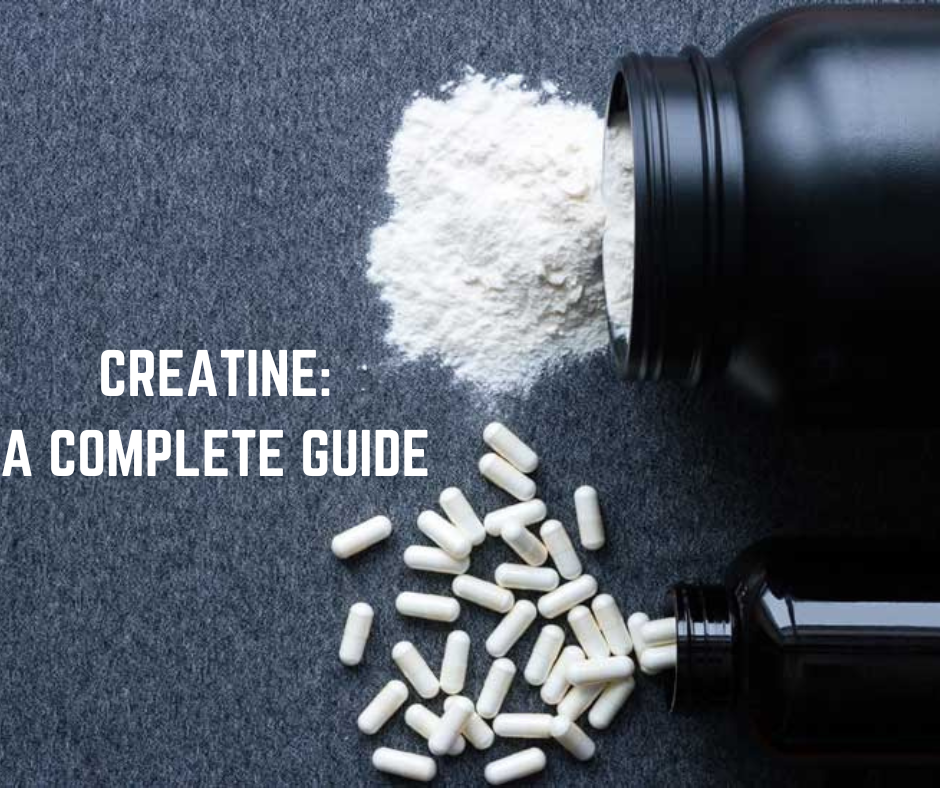Is Creatine Right For Me? A Guide To Creatine Supplementation

Table of Contents
What is Creatine and How Does it Work?
Creatine is a naturally occurring organic compound primarily found in skeletal muscle. It plays a crucial role in energy production, particularly during high-intensity activities. Creatine supplementation is a popular method to enhance athletic performance and promote muscle growth.
Understanding Creatine Monohydrate
Creatine monohydrate is the most researched and widely used form of creatine. It works by increasing the levels of phosphocreatine (PCr) in your muscles. PCr acts as a reservoir of energy, allowing your muscles to produce more adenosine triphosphate (ATP), the primary energy currency of cells. This increased ATP availability leads to enhanced strength, power, and endurance during short bursts of intense exercise.
Different Types of Creatine
While creatine monohydrate reigns supreme, several other forms exist, each with its proponents and detractors. However, the scientific evidence supporting their superiority over creatine monohydrate is often lacking.
- Creatine Monohydrate: Widely researched, cost-effective, highly effective. The gold standard for creatine supplementation.
- Creatine HCL (Hydrochloride): Claimed to have better absorption and reduced gastrointestinal side effects, but research supporting these claims is limited.
- Creatine Ethyl Ester: Poor absorption rates have been reported in studies, leading to limited effectiveness. Generally not recommended.
- Kre-Alkalyn: A buffered form of creatine, purported to be more stable at higher pH levels, leading to better absorption. However, more research is needed to confirm its benefits compared to monohydrate.
The Science Behind Creatine's Effects
The primary mechanism of creatine's effect is its ability to increase intracellular water content in muscle cells. This increased hydration contributes to muscle cell volumization, promoting muscle growth (hypertrophy). Additionally, the increased ATP availability directly contributes to improved strength and power output, allowing for more repetitions and heavier lifts during training.
Benefits of Creatine Supplementation
The benefits of creatine supplementation are well-documented through numerous scientific studies.
Increased Muscle Strength and Power
Numerous studies have demonstrated creatine's effectiveness in increasing muscle strength and power output. Athletes across various disciplines, from weightlifting to sprinting, have reported significant improvements in performance after incorporating creatine into their training regimen.
Enhanced Muscle Growth (Hypertrophy)
Creatine contributes to muscle growth by increasing both muscle cell size (hypertrophy) and potentially muscle cell number (hyperplasia). This occurs through its role in muscle protein synthesis and the increased water retention within muscle cells, creating an anabolic environment.
Improved Cognitive Function
Emerging research suggests that creatine may also offer cognitive benefits. Studies have indicated potential improvements in memory, learning, and reasoning abilities, particularly in individuals with cognitive impairments. However, more research is needed to fully understand these effects.
Other Potential Benefits
Creatine may also offer benefits in other areas, such as:
- Improved athletic performance in high-intensity activities like interval training and weightlifting.
- Potential benefits for certain neurological conditions, although this requires further research and should always be discussed with a healthcare professional.
Potential Side Effects and Risks of Creatine Supplementation
While generally safe, creatine supplementation can have some potential side effects.
Common Side Effects
The most common side effects of creatine supplementation are usually mild and temporary:
- Water retention: This can lead to slight weight gain, often perceived as bloating.
- Gastrointestinal upset: Some individuals may experience nausea, diarrhea, or stomach cramps.
Rare Side Effects
Rare, but more serious, side effects are possible, particularly in individuals with pre-existing conditions:
- Kidney issues: While rare, creatine can potentially exacerbate existing kidney problems. Individuals with kidney disease should avoid creatine supplementation.
- Liver issues: While rare, individuals with liver disease should consult a doctor before considering creatine supplementation.
Who Should Avoid Creatine?
Creatine supplementation should be avoided by individuals with:
- Kidney disease
- Liver disease
- Pregnant or breastfeeding women
- Individuals with specific medical conditions – always consult your doctor.
How to Use Creatine Effectively
To maximize the benefits of creatine supplementation, follow these guidelines:
Loading Phase vs. Maintenance Phase
A loading phase, where you consume a higher dosage (typically 20 grams per day) for 5-7 days, can rapidly saturate your muscles with creatine. Following this, a maintenance phase (typically 3-5 grams per day) is sufficient to maintain elevated creatine levels.
Dosage Recommendations
- Loading Phase: 20 grams per day, divided into four 5-gram doses, for 5-7 days.
- Maintenance Phase: 3-5 grams per day.
Creatine and Hydration
Adequate hydration is crucial when taking creatine. Creatine draws water into muscle cells, so staying well-hydrated is essential to prevent dehydration and maximize its benefits.
Combining Creatine with Other Supplements
Combining creatine with other supplements, such as protein powder, is commonly practiced and generally considered safe. This combination may support muscle growth and recovery synergistically. However, always follow the recommended dosages for each supplement.
Conclusion
Creatine supplementation offers significant potential benefits for increasing muscle strength, power, and growth. While generally safe for healthy individuals, it's crucial to be aware of potential side effects and to consult a healthcare professional before starting any supplementation regimen. Understanding the different types of creatine and following proper usage guidelines will help you maximize the benefits and minimize any potential risks. Is creatine right for you? Talk to your doctor to find out! Make an informed decision about creatine supplementation today!

Featured Posts
-
 Jiskefet Toekenning Ere Zilveren Nipkowschijf Gevierd
May 15, 2025
Jiskefet Toekenning Ere Zilveren Nipkowschijf Gevierd
May 15, 2025 -
 Everton Vina 0 0 Coquimbo Unido Resultado Resumen Y Goles Del Partido
May 15, 2025
Everton Vina 0 0 Coquimbo Unido Resultado Resumen Y Goles Del Partido
May 15, 2025 -
 Important Mls Injury News Martinez And White Out This Weekend
May 15, 2025
Important Mls Injury News Martinez And White Out This Weekend
May 15, 2025 -
 San Diego Padres Daily News And Tatis Jr S Role In Their Wins And Losses
May 15, 2025
San Diego Padres Daily News And Tatis Jr S Role In Their Wins And Losses
May 15, 2025 -
 Everton Vina Coquimbo Unido Reporte Del Partido 0 0 Goles Y Resumen
May 15, 2025
Everton Vina Coquimbo Unido Reporte Del Partido 0 0 Goles Y Resumen
May 15, 2025
